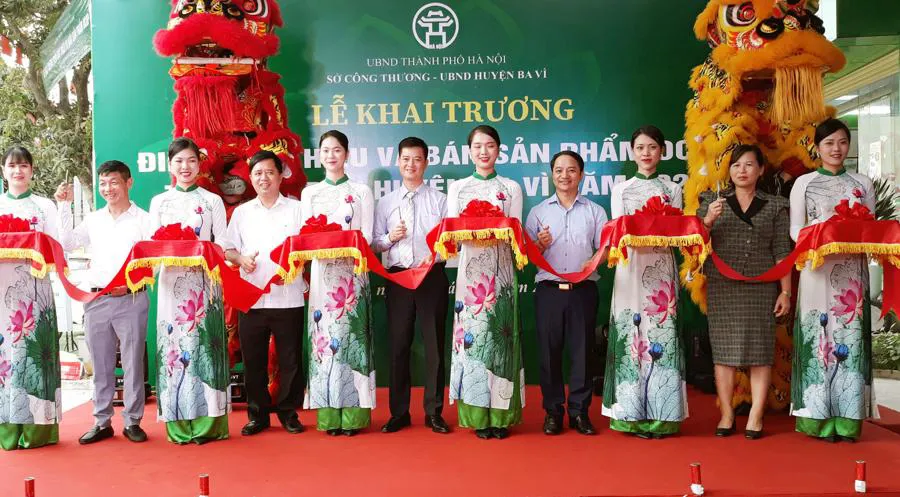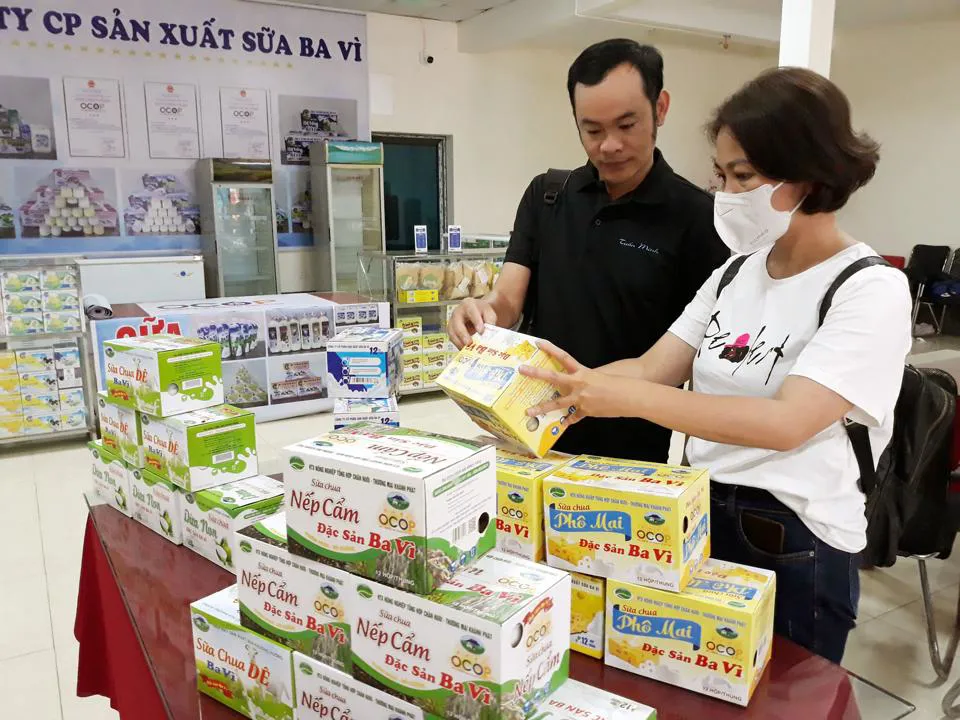Hanoi opens more OCOP showroom in suburb
With OCOP agricultural, food, and specialty products on display and sale, the store will be a trustworthy place for local consumers.
The Hanoi Department of Industry and Trade has opened another showroom of the One Commune, One Product (OCOP) program in the outlying district of Ba Vi this weekend as part of efforts to popularize high-quality specialties from the capital and other localities.
The showroom promotes some OCOP products such as Ba Vi honey, Tan Lien Son herbal medicine, Dao ethnic minority's medicinal herbs, Ba Vi chicken, and products made from Ba Vi milk, tea and pomelo of Yen Bai Province.
Delegates cut the ribbon to open the OCOP showroom in Tan Linh Commune, Ba Vi District. Photo: Hoai Nam/The Hanoi Times |
According to Deputy Director of the Hanoi Department of Industry and Trade Nguyen The Hiep, with OCOP's agricultural, food and specialty products on display and for sale, the store will be a trusted place for local consumers.
"The OCOP showroom also creates opportunities for producers to advertise their products and increase sales," Hiep said. In the past, Ba Vi has made organic and safe agricultural products and created brands for local dairy products, Ba Vi tea, Minh Hong noodles, and Dong Thai sweet potato. In addition, the district has built 103 traditional OCOP products that are highly valued by consumers and visitors, he added.
To bring OCOP products closer to consumers and visitors, the local authorities will encourage and support local units to participate in the network of retail outlets to introduce and sell products, he suggested.
The development of these showrooms aims to introduce consumers to high-quality OCOP products and also promote connectivity in production and sales among stakeholders.
Consumers buy OCOP products at the opening ceremony. Photo: Hoai Nam/The Hanoi Times |
Through the program, producers have a chance to improve safe and sustainable production skills so as to capitalize on their advantages and improve product quality, value and packaging.
Currently, Ba Vi has 138 products participating in OCOP evaluation and ranking in the district. In the coming time, Ba Vi District will focus on products meeting the current criteria to support producers to consume OCOP products. Moreover, businesses and facilities in the district will be urged to exchange experience, effective economic models, and high-technology applications.
Hanoi is taking the lead nationwide in the number of OCOP products, with more than 1,600 products of nearly 450 businesses, cooperatives, and business households being given stars. The city has so far set up about 60 OCOP showrooms across 26 districts. The sites display and sell not only local products but also those of 25 other provinces and cities.
Hanoi authorities said they will continue to assist the opening of OCOP showrooms so that these products can be available to more consumers throughout the city.
The OCOP program was initiated by the Ministry of Agriculture and Rural Development in 2008, based on Japan’s “One Village, One Product” and Thailand’s “One Tambon, One Product” programs. It is an economic development program for rural areas and also to help implement the national target program on new-style rural area building.
The program has provided farmers to form cooperatives, which in turn have enabled farmers to create goods with better quality, design, and packaging that meet higher standards and market demand, promoting product diversification and origin traceability.













